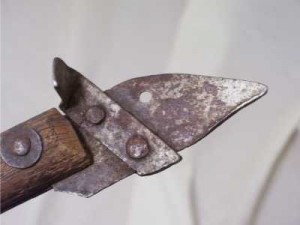Monthly Archives: March 2015
Mark’s Job Hunting Tip #1
When making appointments, use specific dates.
‘Today’ and ‘tomorrow’ can be dangerous words in e-mails. A lot of people have missed job interviews because they used the words ‘today’ or ‘tomorrow’ ambiguously. Don’t say: “I’ll see you tomorrow at 3 o’clock.” Say: “I’ll see you tomorrow, Tuesday, June 3 at 3 o’clock.” Keep in mind that ISPs (Internet Service Providers) go down all the time. When they do, e-mails get delayed, sometimes for hours. If you send someone an e-mail at 3:00PM that says ‘I’ll see you tomorrow’, the recipient may not get your message until he comes to work the following day, in which case, you may show up a day early or a day late for your appointment. Don’t leave prospective employers (or anyone else) wondering what date you are talking about. It makes you look unprofessional. It also makes you look like someone who doesn’t pay attention to details, and worst of all, you could miss your appointment. Remember the old saying – You only get one chance to make a good first impression.
There is another problem with the words ‘today’ and ‘tomorrow.’ There are different ways of thinking about the meaning these words. For some people, ‘today’ means ‘this day’, or in other words, from sunrise to sunset. For other people, ‘today’ means sunrise to sunrise, and for other people it means midnight to midnight. A lot of people use the words ‘day’ and ‘date’ as though they thought that these words meant the same thing, but they don’t. In your mind, your day may have started when you got out of bed this morning, but you know that the date changed at midnight. ‘Today’ and ‘tomorrow’ can be ambiguous. Dates are specific. Use specific dates in all your business correspondence.
I often have this problem in my business. When I have a house for rent listed on Craigslist, I frequently get e-mails from people with questions like: “Can I see your house sometime tomorrow?” I don’t answer questions like that with ‘Yes’ or ‘No’ because I don’t know what this person has in mind by ‘sometime tomorrow’. I write back and ask: “Specifically when would you like to see the house?” You might be surprised at how frequently people are offended and get angry with me when I ask them to tell me exactly when they want to come on over and see my house. It’s strange, but this happens quite often.
Worst Applicant Ever
The Loose Screw. While I’m on the subject of e-mails from prospective tenants, let me mention the ‘loose screw.’ A ‘loose screw’ is an expression that my father used to use. A person with a loose screw is somebody who is just plain screwy. He is what is known in the San Francisco bay area as a ‘Berkeley type’, and there are a lot of Berkeley types in Berkeley. Berkeley types are usually well educated, articulate, and interested in the arts and politics. These people are not mentally ill, and they are certainly not stupid. They are just really weird. I always have my antennae up when reading e-mails from prospective applicants, looking for the guy with a loose screw. Here are some e-mails that I received the last time I had an apartment listed for rent on Craigslist. Do any of these people sound to you like they have a loose screw?
“Your apartment is exactly what I am looking for. I am very excited! I am ready to sign a lease now and move in tomorrow. I just have one question. Where is Berkeley?”
“I saw your ad on Craigslist. Your ad says that the apartment has 4 bedrooms. Are they all inside?”
“Your ad says that you won’t allow a dog. What about 2 dogs?” (This one is my favorite!)
Civil War Inventions.
 1. Can openers. Union soldiers ate a lot of canned food during the Civil War. Although canned food had been around for 50 years prior to the Civil War, strangely, nobody made can openers prior to the war. Prior to the Civil War, people opened tin cans with hammers and chisels or hatchets. Opening tin cans made a huge mess and frequently injured the person trying to open the can. After many soldiers were injured opening tin cans, the Union army started ordering and distributing can openers to soldiers in 1862.
1. Can openers. Union soldiers ate a lot of canned food during the Civil War. Although canned food had been around for 50 years prior to the Civil War, strangely, nobody made can openers prior to the war. Prior to the Civil War, people opened tin cans with hammers and chisels or hatchets. Opening tin cans made a huge mess and frequently injured the person trying to open the can. After many soldiers were injured opening tin cans, the Union army started ordering and distributing can openers to soldiers in 1862.